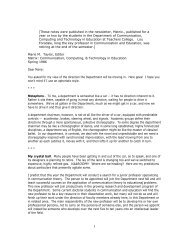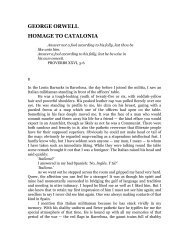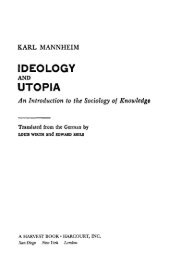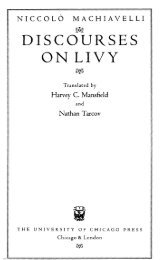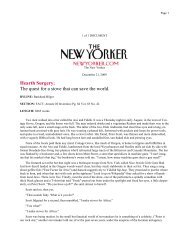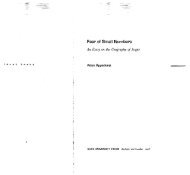THE REPUBLIC OF PLATO - Studyplace
THE REPUBLIC OF PLATO - Studyplace
THE REPUBLIC OF PLATO - Studyplace
You also want an ePaper? Increase the reach of your titles
YUMPU automatically turns print PDFs into web optimized ePapers that Google loves.
INTRODUcnON<br />
xxv<br />
'At last I perceived that the constitution of all existing states is bad<br />
and their institutions all but past remedy without a combination of radical<br />
measures and fortunate circumstance; and I was driven to affirm, in<br />
praise of true philosophy, that only from the standpoint of such philosophy<br />
was it possible to take a correct view of public and private<br />
right, and that accordingly the human race would never see the end of<br />
trouble until true lovers of wisdom should come to hold political power,<br />
or the holders of political power should, by some divine appointment,<br />
become true lovers of wisdom.<br />
'It was in this mind that I first went to Sicily and Italy.'<br />
So, towards his fortieth year, Plato arrived at the paradox which<br />
was to be explained and defended in the central part of the<br />
Republic. The bitter tone of the Gorgias suggests that he then saw<br />
no way of carrying this theoretical solution into practice. The path<br />
to power in democratic Athens was definitely closed. But the first<br />
visit to the court of Dionysius I at Syracuse opened up the prospect<br />
of intervening, directly or indirectly, in the affairs of a state under<br />
a different type of constitution, which might conceivably be reformed<br />
from above. If the multitude can hardly be won over to<br />
Socratic principles, the conversion of a despot, in full control of a<br />
city-state, might lead to a reformation remotely comparable to<br />
Calvin's theocracy at Geneva. Socrates alludes to this prospect<br />
where he says (Rep. 502 A, p. 210) :<br />
'No one will dispute that kings and hereditary rulers might have sons<br />
with a philosophic nature, and these might conceivably escape corruption.<br />
. . . One would be enough to effect all this reform that now<br />
seems so incredible, if he had subjects disposed to obey; for it is surely<br />
not impossible that they should consent to carry out our laws and customs<br />
when laid down by a ruler.'<br />
Dionysius I was a self-made and entirely unscrupulous despot,<br />
who, after coming to terms with the Carthaginian invaders of<br />
Sicily, .had established his personal rule at Syracuse, enslaved or<br />
devastated the neighbouring Greek cities, and was now trying to<br />
add lower Italy to his dominions. His career has probably contributed<br />
several traits to the portrait of the despot in chapter xxxii.<br />
In the seventh Letter Plato says nothing of his intercourse with



